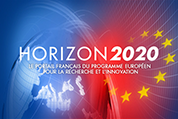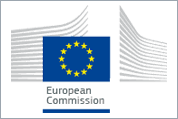ESR1.2: Christian ReinickeCoherent acoustic multiple scattering imaging

Christian REINICKE: I grew up in a small city nearby Munich. From 2011 to 2013 I studied physics at the technical university of Munich with a specialization in applied engineering physics. During my bachelor thesis I had the opportunity to set up a high temperature experiment within a research group of strongly correlated electron systems at TU Munich. The set up extended the maximum accessible temperature from room temperature to 1200 C.
After my bachelor studies I jumped into the field of geophysics and joined the IDEA League master program. This master course enabled me to study at TU Delft, ETH Zurich and RWTH Aachen. During the master thesis I conducted research on seismic deblending of simultaneous (marine) crossline sources in cooperation with PGS Leiden.
After graduating I decided to work on a PhD project at TU Delft in the group of Kees Wapenaar. My project aims to design a time-dependent acoustic incident wavefield which is optimally reflected in highly scattering media. In addition I will seek to understand the link of coherent multiple scattering with Marchenko imaging.
Main host institution
Department of Geosciences and Engineering, Faculty of Civil Engineering, Delft University of Technology (Delft, Netherlands)
Supervisor
Kees Wapenaar (C.P.A.Wapenaar @ tudelft.nl), Johan Robertsson (johan.robertsson @ erdw.ethz.ch), Marcin Dukalski (Marcin.Dukalski @ shell.com)
Secondment institution
Institut für Geophysik, Eidgenössische Technische Hochschule (Zurich, Switzerland)
Objectives
A wave propagating through a highly scattering medium loses its coherence after several wavelengths of propagation. Random multiple scattering destroys the ballistic wave and causes the transmitted wave to be weak and incoherent. Recent developments in optics are directed towards designing incident waves that propagate along complex paths (also called ‘open channels’), optimally profiting of coherent multiple scattering. These complex incident waves propagate with almost no transmission loss through the scattering medium. The ESR will investigate the possibilities of coherent multiple scattering for acoustic imaging.
Expected results
The ESR’s research will concern in particular the optimum use of time-dependent acoustic signals (versus nearly monochromatic signals in optics), and the issue of employing reflection vs. transmission measurements. He or she will seek to understand the link with the Marchenko imaging method, which also deals with multiple scattering, but in a very different way and in the context of geophysical imaging. It will be determined whether a combination of both methodologies may lead to improvements of the obtainable accuracy and resolution of the final image. The results will be tested on numerically modelled data and on data measured in the WaveLab laboratory. Applications of coherent acoustic multiple scattering imaging to ultrasonic and geophysical reflection and transmission data are envisaged: we expect that this research will have important implications for imaging/monitoring in highly scattering environments, such as volcanoes and subsurface saltdomes.
International conferences
EAGE Conference and Exhibition, 30/05-02/06/2016, Vienna, Austria - Poster presentation on "Seismic Blending and Deblending in 3D"
--> see all WAVES Posters & Flyers
further information
Christian Reinicke's LinkedIn page
Christian Reinicke's ResearchGate page
Key Facts
- Coordinated by Université Pierre et Marie Curie
- 15 participating partners
- 6 European countries and the USA
- 15 trained fellows
- Project budget: 3 227 952.96€
- Project duration: 4 years
- WAVES is a European project funded by the European Union’s Horizon 2020 research and innovation programme under the Marie Slodowska-Curie grant agreement n° 641943.
Contact
Coordinator:
Lapo Boschi (lapo.boschi @ upmc.fr)
Project Manager
Fanny Schultz (fanny.schultz @ sorbonne-universite.fr)



